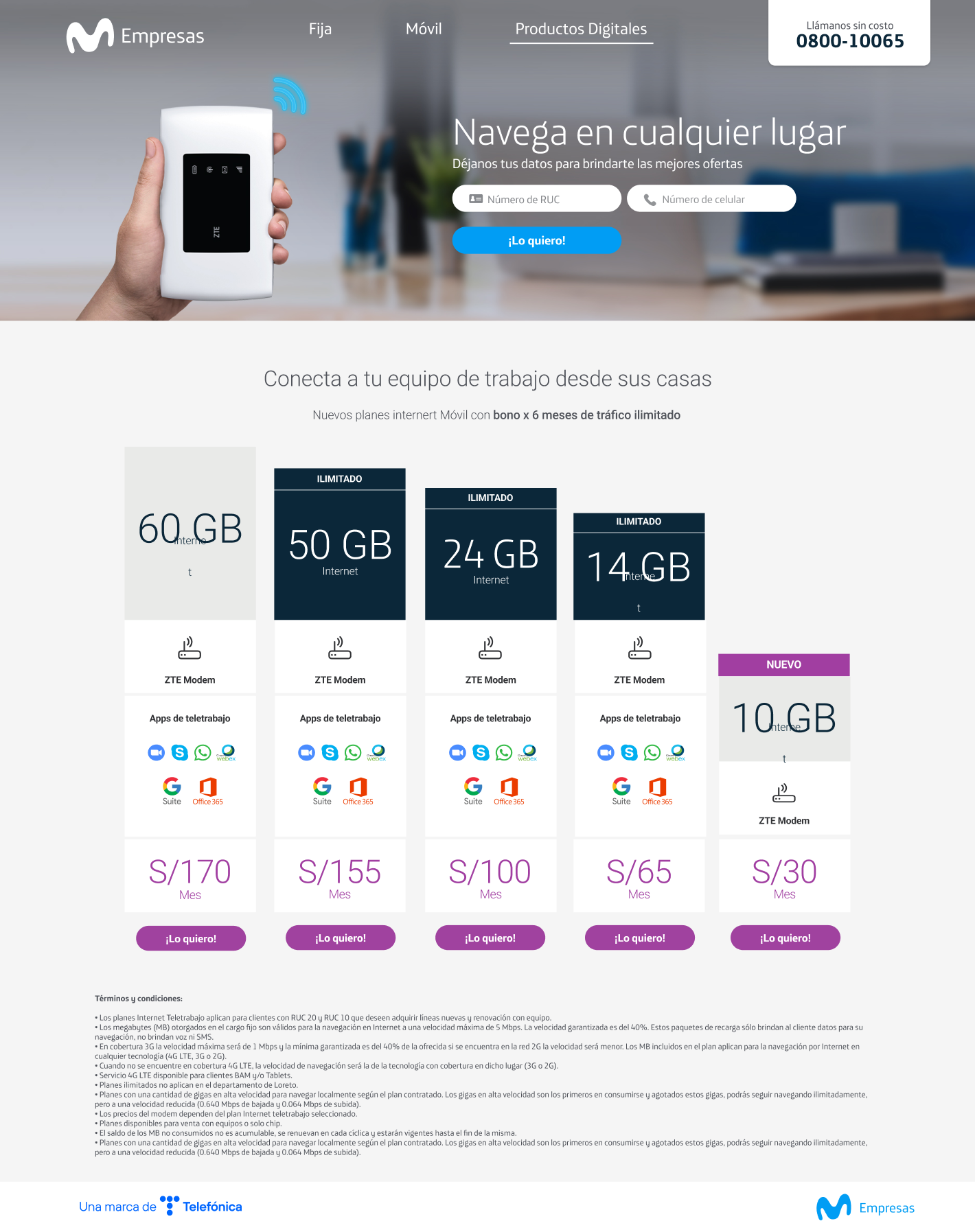Professional project
Online Store, unlocking the Digital Power
A website that unifies the products and services of Movistar Empresas
Design Challenge
Movistar Empresas is the business unit of the Telefónica Group that offers fixed and mobile internet products and solutions to businesses and public institutions.
The company sought to have the first digital asset that contributes to online sales nationwide.
The creation of the Movistar Empresas Online Store consists of a multi-product commercial landing page focused on fast loading and performance.
Through this project we sought to improve conversion, eliminate leakage points and provide a better experience to potential customers.
Problem
No digital presence of Movistar Empresas Peru, the digital sales channel is inefficient, it does not convert.
Solution
Multi-product landing focused on performance: capture of B2B leads (offer and price).
Impact
Average web conversion level 5% (before 1%). Growth of participation of the online channel from 7% to 15%.
role
Product Designer
Guided a team of 5 (2 designers and 3 developers) in the creation ofresponsive websites.
TEAM
2 Product Designers
1 Front-end Developer
2 Back-end Developers
1 QA
year
2020
main learning
"Design bring ideas to life"


























